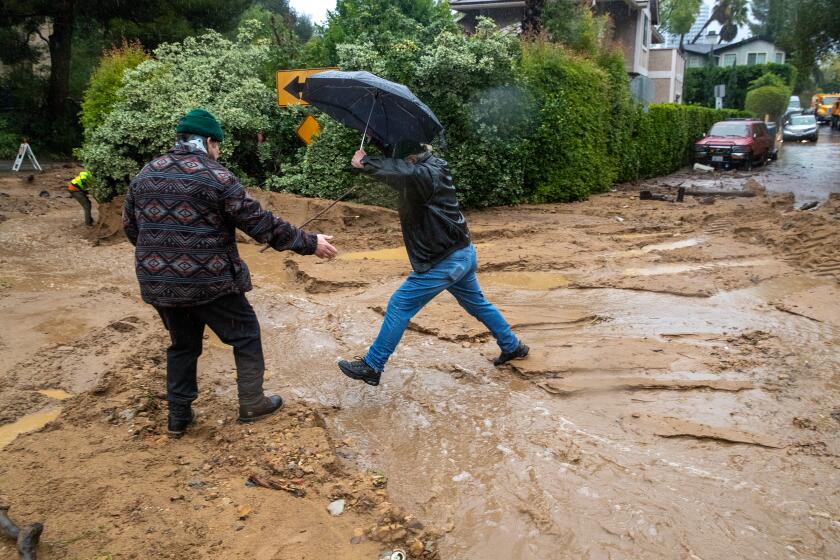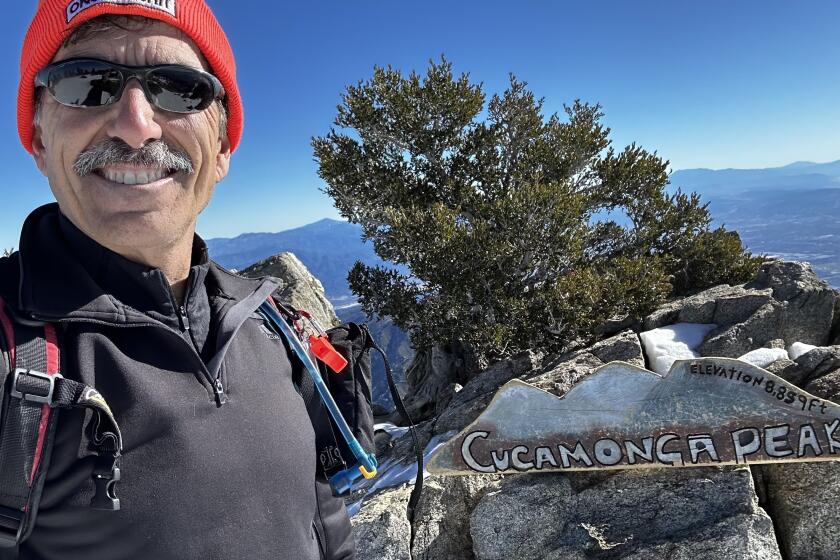Frustrated by waiting, some hikers return to potentially hazardous trails
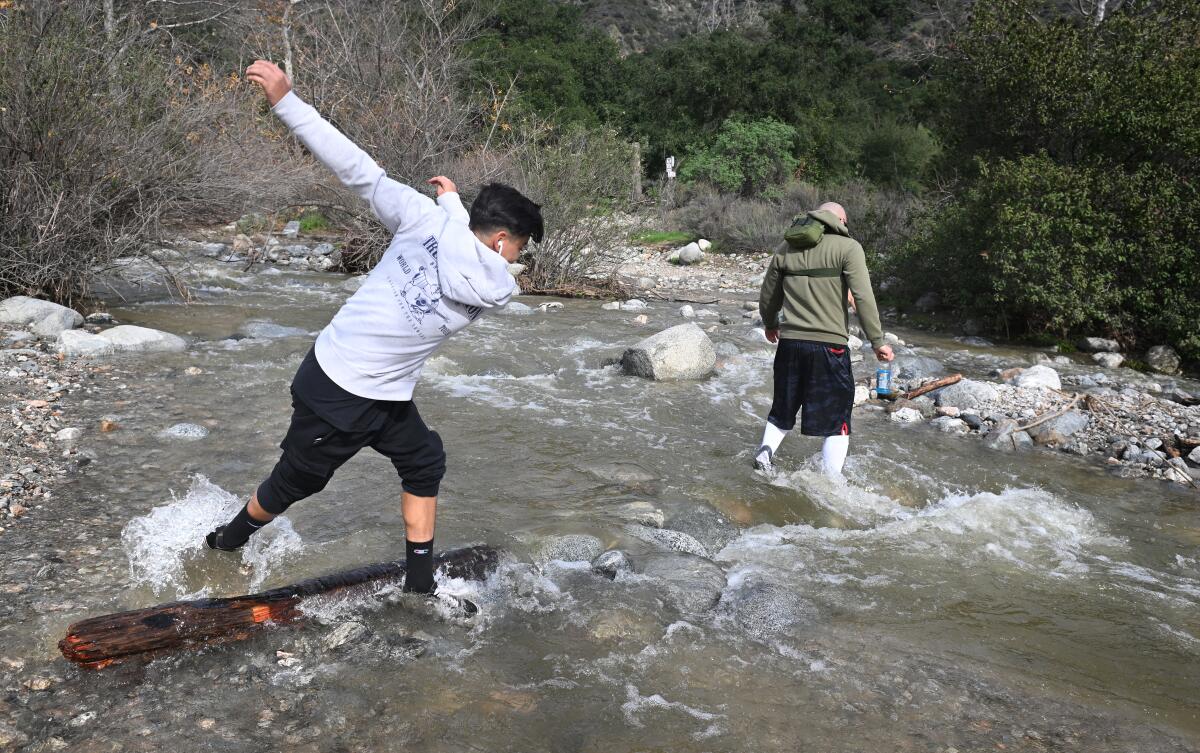
- Share via
The ominous message was taped to an 18-inch orange traffic cone.
“Danger. Flash flood area. Do not enter,” it read.
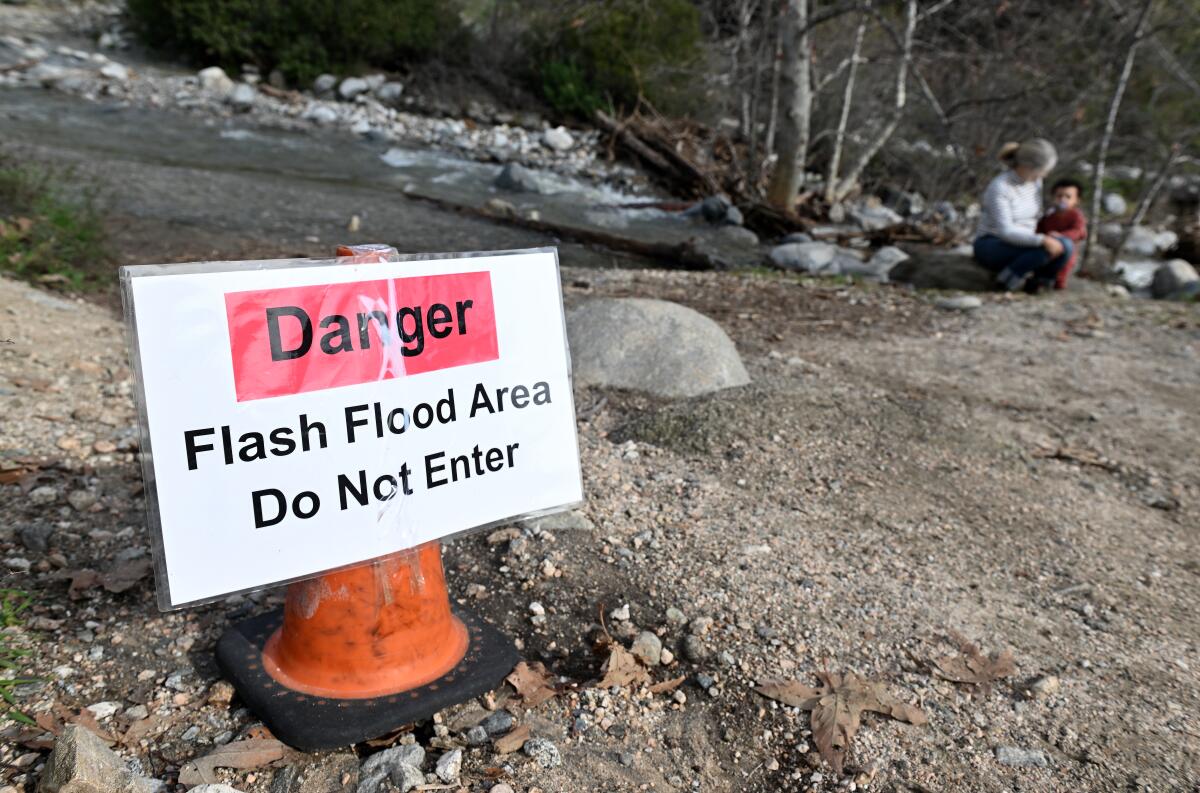
Pomona resident Maria Avila saw the warning as she reached a stream at Pasadena’s Eaton Canyon Natural Area County Park with her parents and brother last Thursday afternoon.
After the storms of the past few weeks, what was normally a trickle was now 2 feet of rushing, near-freezing water.
To continue on the trail, which leads to a waterfall, hikers needed to ford the 20-foot-wide stream on slippery boulders.
Some turned back, afraid of losing their footing. Avila, her parents and brother rolled up their pants, took off their shoes and socks and plunged in.
“I know it’s not the safest time right now, but I wasn’t going to turn back, because this really is the most beautiful time to enjoy the park and nature,” Avila said. “I feel like we’ve already lost a lot of time because of the rain, and we don’t want to miss any more.”
The Avilas eventually made it to the waterfall.
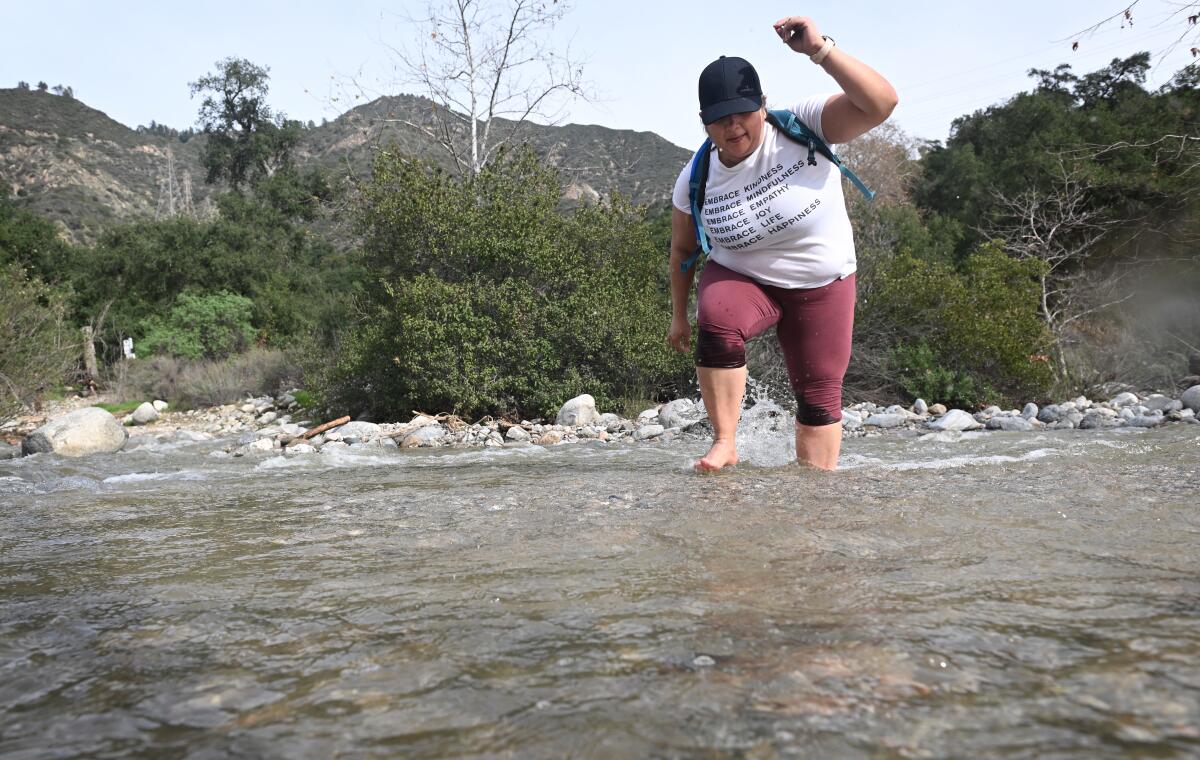
During a pause in the winter rains, nature lovers who were cooped up at home were venturing onto trails fringed by newly sprouted greenery.
But park rangers and outdoors experts warn of hazards created by the storms, ranging from water crossings like the one at Eaton Canyon to slippery paths on steep mountainsides to potentially deadly snow and ice.
Sometimes, a trail that seems tame at the outset becomes increasingly hairy — with the temptation to push through to reach a summit or other scenic landmark.
Astonishing rainfall in L.A. County caused mudslides, flooding and a massive sinkhole.
“You have a situation where streams are swollen, you have natural seepage on the paths and rivers are roaring,” said Mike Leum, a longtime volunteer search and rescue leader for the Los Angeles County Sheriff’s Department. “But you go outside and it’s sunny, and that’s very attractive for city dwellers.”
On Jan. 8, veteran hiker Crystal Paula Gonzalez fell 500 feet to her death on the icy Baldy Bowl Trail. Gonzalez was an experienced outdoorsperson nicknamed the “Hiking Queen,” according to CBS Los Angeles.
Those who brave Mt. Baldy and surrounding areas should avoid traveling alone, bring extra food and clothing and receive winter mountaineering training, the U.S. Forest Service recommends.
On Dec. 28, Los Angeles resident Jarret Choi fell and died on the Ice House Trail, near where Gonzalez lost her life. Officials took two days to find Choi’s body, due to poor visibility, bad weather and ice.
Whether you’re a seasoned snow hiker or planning your first trek, bear in mind that even a short trip in the snow can be grueling. So plan ahead, have the right gear and check the weather.
Accidents and close calls are not limited to challenging trails like those on Mt. Baldy.
Leum assisted the Montrose Search and Rescue Team in saving a Boy Scout troop — five boys and three adults — caught between a pair of rising rivers near Big Tujunga Creek on Sunday evening. All were unharmed.
“It was supposed to be a single day loop hike that I believe they thought would be easy,” said Leum, the Sheriff’s Department’s assistant director of reserves, search and rescue and posse programs. “Sometimes it’s best to wait.”
Kelsey Lynn and Madison Powers are stressing a message of “patience” to the 1,000-plus member LA Hike Club.
On Jan. 5, Lynn hiked the Echo Mountain trail above Altadena in the Angeles National Forest, in between bouts of rain.
The 34-year-old Echo Park resident was surprised to see “large portions of the trail that were caved in” and has not hiked since, due to safety concerns.
“We think it’s a good idea to give it a couple of days after it rains for the trails to dry off if you’re going on a hard-packed mud trail, like a fire road,” said Powers, 35, a resident of Hancock Park. “But if you really want to get in a hike immediately after it stops raining, it’s probably safest to go on a paved route.”
Powers and Lynn, who co-founded the hiking club with another friend, suggest routes such as Runyon Canyon Park in Hollywood and Malibu’s Solstice Canyon Loop.
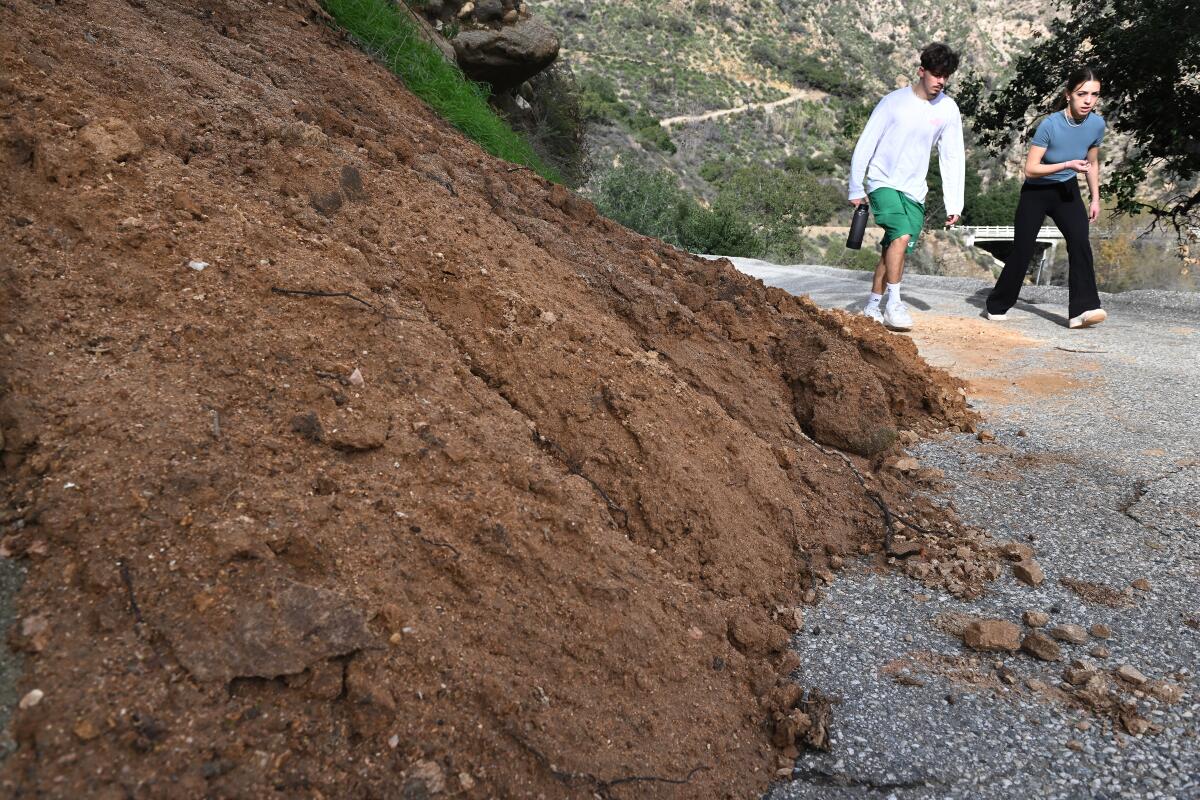
Some trails such as Sycamore Canyon and Turnball Canyon, operated by the Puente Hills Habitat Preservation Authority, routinely close for 48 hours after heavy rain. Eaton Canyon shutters on days with heavy rains, like Tuesday, while the Angeles National Forest, which closed an off-road vehicle area, and Paseo Miramar in Pacific Palisades have remained opened with few advisories.
Last Thursday, Alberto Salazar and his girlfriend, Brittney Huerta, picked their way along the Eaton Falls trail, which begins inside Eaton Canyon and crosses into the Angeles National Forest.
Two days earlier, this rock-covered path was flooded by 5 inches of rain and impossible to pass.
Caution tape lined some of the trees and boulders surrounding a small waterfall near the entrance to the national forest.
For Salazar, 20, of Paramount, this was the first day he and his girlfriend both had time for a hike.
To get to the waterfall about 1.5 miles away, they crossed unstable log-and-rock bridges, with Salazar almost slipping at one point as he carried his 30-pound goldendoodle.
Eventually, they reached the 40-foot-high waterfall.
“To me, this is what it’s all about, to be out here in nature and enjoy this with my girl,” Salazar said. “Why wait? It’s worth a little risk, I guess.”
More to Read
Sign up for Essential California
The most important California stories and recommendations in your inbox every morning.
You may occasionally receive promotional content from the Los Angeles Times.
